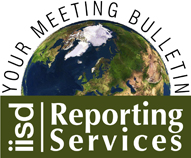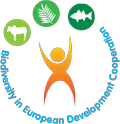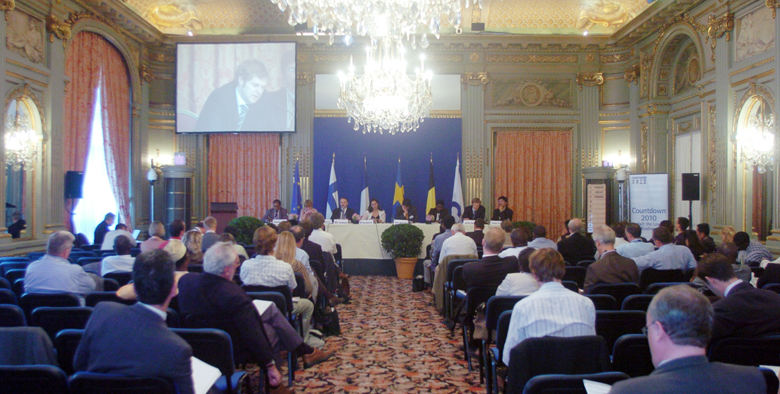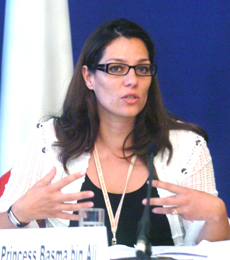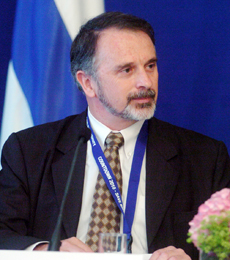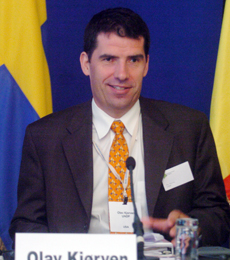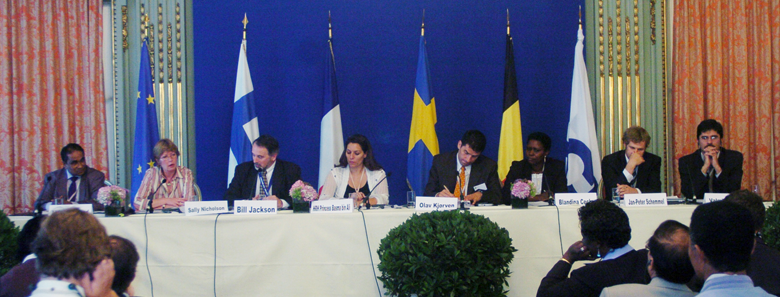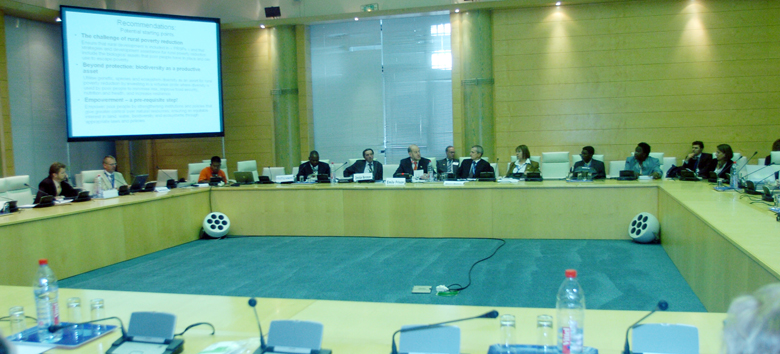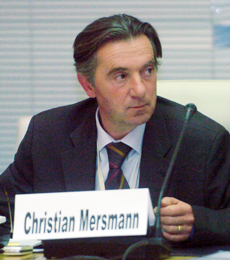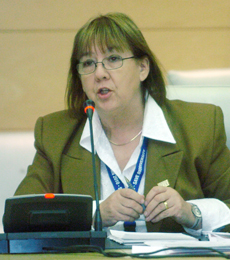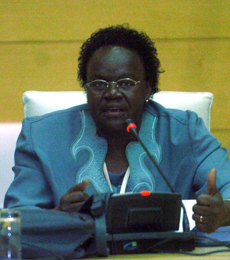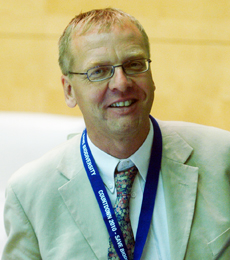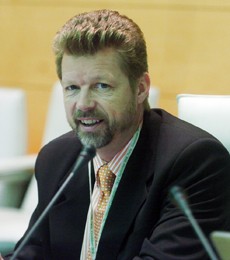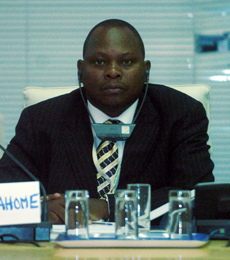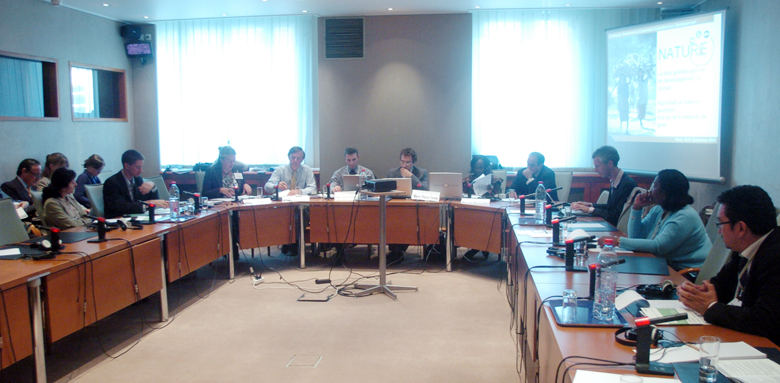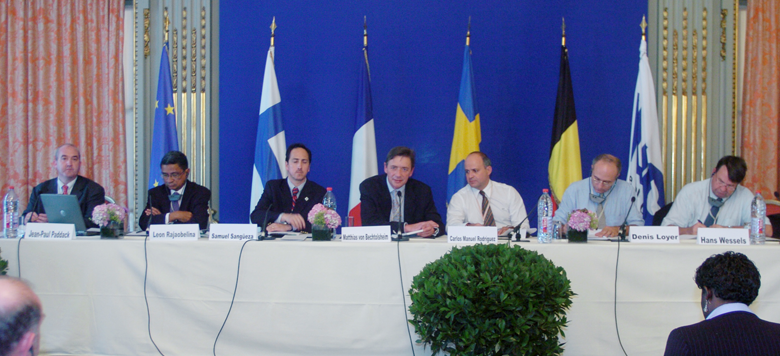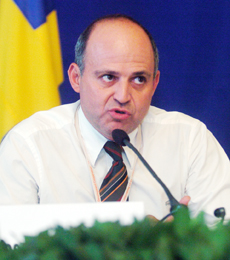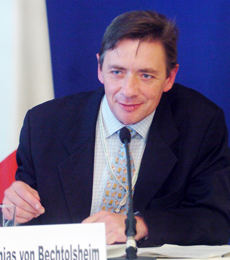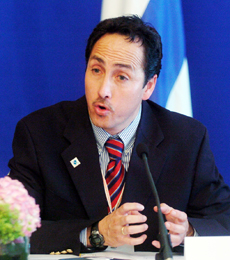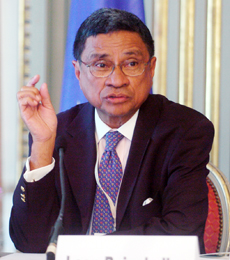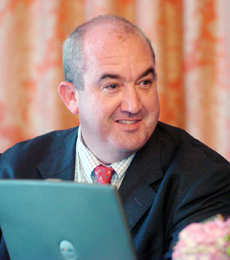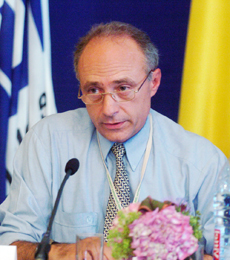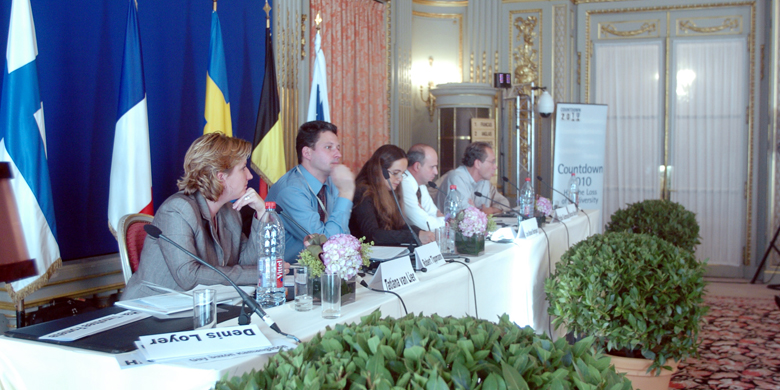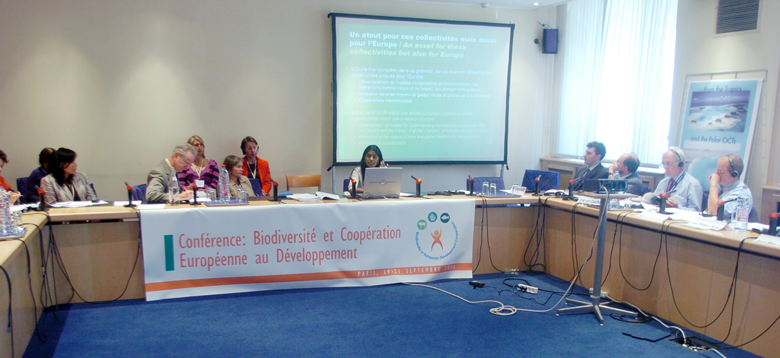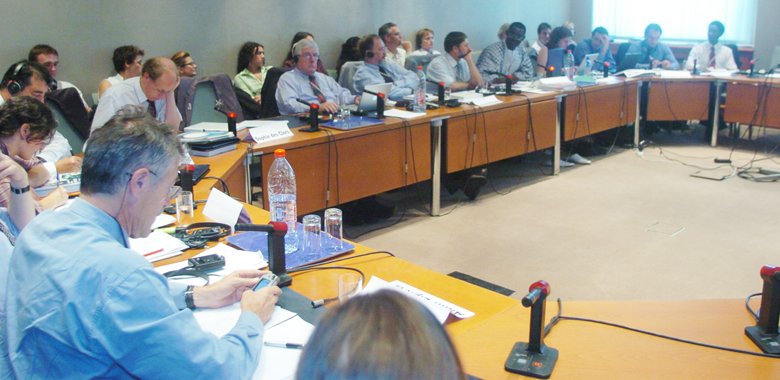|
||||||||||||
|
This workshop was co-chaired by Princess Basma Bint Ali, Royal Marine Conservation Society of Jordan, and Olav Kjørven, Director, Energy and Environment Group, UNDP, and was moderated by William Jackson, Director, Global Programme, IUCN. Opening speeches were followed by a panel on national experiences and a discussion session. Basma Bint Ali presented the specific objectives of the workshop, namely: identifying useful approaches from integration of sound environmental management in poverty reduction strategy papers; exploring the environmental and other challenges for the national development strategies called for in the Outcome Document of the 2005 World Summit; and considering the response options of the EU. Aboubacry Demba, National Planning and Coordination with Regional Planning Director, Senegalese Ministry of Sustainable Development, stressed the importance of establishment of information systems, capacity building and awareness campaigns. Leif John Fosse, Department for International Cooperation, Norwegian Ministry of Environment, underlined community conservation as particularly important in countries with poor governance and stressed that the MDGs are unattainable without local action.
|
|||
|
Blandina Ceche, Division of Poverty Eradication, Office of the Vice President of Tanzania, identified the need for: capacity building; research and analytic work on ecosystem services; and local awareness raising. Valmir Ortega, Director of Ecosystems, Brazilian Institute of Environment and Natural Renewable Resources, highlighted economic benefits generated by ecotourism. Jan-Peter Schemmel, German Cooperation Agency (GTZ), stated that strategic environmental assessments are suitable for local-level planning and achievement of strong ownership of stakeholders, and stressed the need for capacity building at the local level. Abdullahi Majeed, Deputy Minister of Environment, Energy and Water of the Sally Nicholson, WWF European Policy Office, called for the 25 EU member States to adopt a harmonized approach to implementing the new guidelines on European cooperation. In ensuing discussions, participants addressed: the importance of economic information on ecosystem services; pricing the impacts of environmental degradation; and the need to focus on the rural poor and the local level.
|
|||
L-R: Abdullahi Majeed, Deputy Minister, Ministry of Environment, Energy and Water of the Maldives; Sally Nicholson, WWF European Policy Office; Moderator William Jackson, Director, Global Programme, IUCN; Co-chair Princess Basma Bint Ali, The Royal Marine Conservation Society of Jordan; Co-chair Olav Kjørven, Director, Energy and Environment Group, UNDP; Blandina Ceche, Poverty-Environment Officer, Division of Poverty Eradication, Office of the Vice President of Tanzania; Jan-Peter Schemmel, GTZ; and Valmir Ortega, Director of Ecosystems, Brazilian Institute of Environment and Natural Renewable Resources
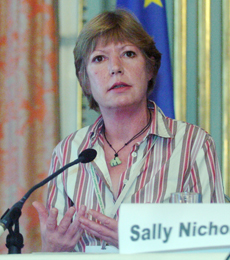 |
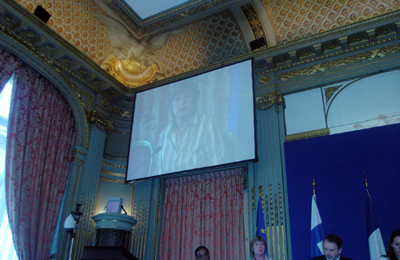 |
|||
|
This workshop was chaired by Emile Frison, Director General of the International Plant Genetic Resources Institute. He stated that the workshop aims to produce suggestions for investment decisions by governments and intergovernmental organizations. Erastus Wahome, Head of the European Commission Division, Kenyan Ministry of Finance, discussed poverty issues such as housing and food security that impact biodiversity. Christian Mersman, Director, Global Mechanism, UN Convention to Combat Desertification described deforestation in Ruud Jansen, Chief Technical Advisor, Environment Support Programme, United Nations Development Programme, detailed a community-based natural resource management project in Javier Méndez, Community Technical Officer, Indigenous Peoples and Peasant Coordinating Association for Central American Community Agroforestry, listed a number of ecosystem services in Meso-America, including medical resources and eco-tourism. Gill Shepherd, IUCN Commission on Ecosystem Management, outlined a number of aspects of MDGs, including those on poverty, health and education, where biodiversity is invloved. Stewart Maginnis, Head, IUCN Forest Conservation Programme, discussed the value of natural resources in the rural economies of developing countries, and the need to address MDGs through biodiversity conservation. In the ensuing discussion, participants stressed the need to ensure that rural development is included in national policies and strategies and called on development officials to regard biodiversity as a productive asset. They also supported empowering the poor by strengthening institutions and policies that give them greater control over natural resources. Participants also urged the workshop leaders to go beyond these general points and make specific recommendations for mainstreaming biodiversity goals in EU programmes relating to migration, climate change, and conflict prevention.
|
|||
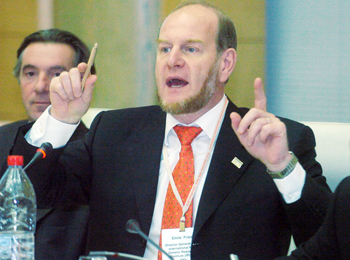 |
|||||
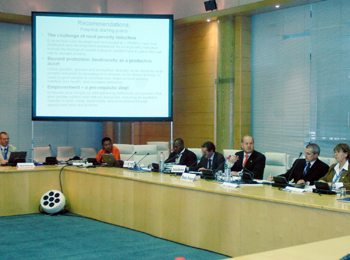 |
|||||
| Emile Frison, Director General of the International Plant Genetic Resources Institute (IPGRI) | |||||
|
Participants during the conference |
|||||
|
This workshop was moderated by Gwen van Boven, IUCN Commission on Communication and Education. Brief introductions by panelists were followed by a discussion. Identifying key aspects to communication and education, Nick Hanley, Head of Communication, DG Environment, EC, called for honesty and transparency. Marie Tamoifo, Association Jeunesse Verte de Cameroun, recommended using understandable and effective terminology. Michael Ginguld, World Education, said education should facilitate processes for biodiversity conservation while bringing out the content necessary to understand the relevant objectives. Marco Vincio Cerezo, FundaEco, suggested learning from mistakes, particularly communication problems with communities and non-conservation actors. Sebastian Winkler, Head of the IUCN Countdown 2010 Secretariat, recommended keeping the message simple, creating hope, and motivating people. Participants discussed ways to find common ground among the various stakeholders, noting that: the concept of biodiversity is almost incommunicable; political timeframes are often ill-suited to longer-term thinking; and conservation still has a negative image. They recommended stressing common benefits of, and the economic need for, conservation, and involving economists in the debate. One participant called for a rights-based approach and said the challenge lies more in governance than in technology, while another underscored the importance of involving younger generations, stressing the applicability of conservation to everyday life, and suggested using alternative communication forms like music and theater. Participants agreed upon the importance of: listening, rather than hammering down concepts; timely communication; getting the message across to communication and education professionals; starting at an entry point relevant to the stakeholders involved; promoting protected areas as a confluence for development and environmental objectives; and stressing mutual interests in the natural resources concerned. Participants also shared practical experiences, noting challenges regarding: reconciling local interests and political objectives; training new generations of educators; using local languages; integrating biodiversity concepts into “life skill education” in existing school curricula; and encouraging the incorporation of biodiversity concerns into demand-driven official development aid.
|
|||
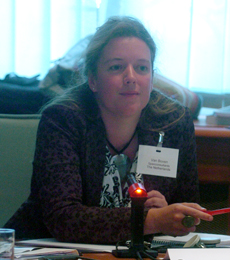 |
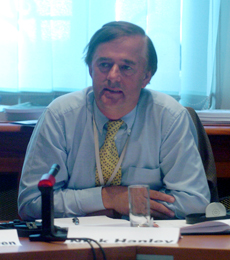 |
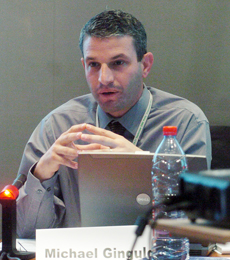 |
|||||
|
Gwen van Boven, IUCN Commission on Communication and Education |
Nick Hanley, Head of Communication, DG Environment, EC |
Michael Ginguld, World Education |
|||||
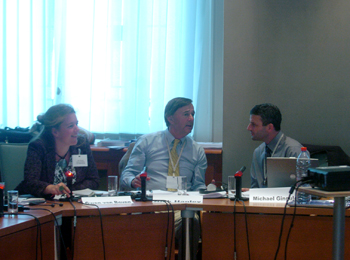 |
||||
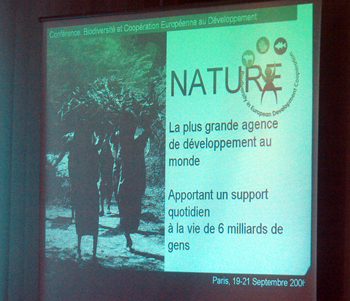 |
||||
|
L-R: Gwen van Boven, IUCN Commission on Communication and Education; Nick Hanley, Head of Communication, DG Environment, EC; and Michael Ginguld, World Education |
||||
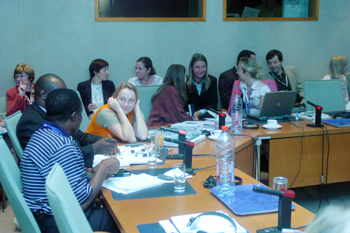 |
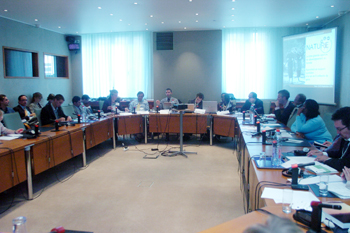 |
|||
|
This workshop was chaired by Carlos Manuel Rodríguez, Regional Vice President and Regional Director of the CBD for Two country presentations were followed by panel presentations and discussion. Leon Rajaobelina, Vice President, Conservation International - Samuel Sangüenza, Executive Director, National Environment Fund of Ecuador, described the use of trust funds for financing national parks in In the ensuing discussion, participants addressed: the EU’s absence in endowment funds; funding for sustainable use; incentives for biodiversity conservation; debt swapping as a means to finance trust funds; and administrative costs of trust funds. On bilateral aid, Denis Loyer, Head of Environment and Natural Resources Division, French Development Agency, suggested reintroducing loans to finance profitable projects, and stated that business plans give credibility and visibility to projects. Noting that trust funds are not new mechanisms, Hans Wessels, Head, Natural Resources and Ecosystems Management, Dutch Ministry of Foreign Affairs, called for innovative mechanisms that engage the private sector and the identification of clients to pay for ecosystem services. Robert Tipmann, Coordinator of Policy Advisory Services, Ecosecurities, said an international regulatory framework under the CBD is needed to mobilize additional resources for ecosystem services payment schemes that are not restricted to piggybacking carbon projects or voluntary measures. Duncan Marsh, The Nature Conservancy, supported carrying out pilot projects on linking avoided deforestation and climate change. Tatiana van Lier, Netherlands Postcodelottery, explained that the Postcodelottery gives 50% of its profits to human rights and environmental charities. Pablo Gutman, Senior Policy Officer, Macroeconomics for Sustainable Development Program Office, WWF, called for bringing together the interests of the rural poor and of the conservation movement.
|
|||
L-R: Jean-Paul Paddack, West Indian Ocean Programme Officer, WWF Madagascar; Leon Rajaobelina, Vice President, Conservation International-Madagascar; Samuel Sangüenza, Executive Director, National Environment Fund of Ecuador; Moderator Mattias von Bechtolsheim, Sector Specialist, Natural Resources and Agriculture – KfW Banking Group; Carlos Manuel Rodríguez, Regional Vice President and Regional Director CBD of Mexico and Central America of Conservation International’s and former Minister for Environment, Water and Industry of Costa Rica; Denis Loyer, Head of Environment and Natural Resources Division, French Development Agency; and Hans Wessels, Head, Natural Resources and Ecosystems Management, Ministry of Foreign Affairs, The Netherlands
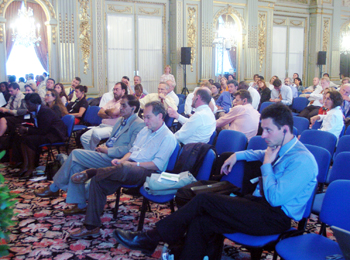 |
|||||
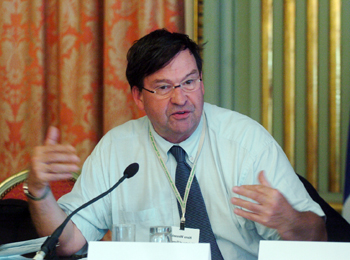 |
|||||
| Participants during Hans Wesels intervention | |||||
|
Hans Wessels, Head, Natural Resources and Ecosystems Management, Ministry of Foreign Affairs, The Netherlands |
|||||
L-R: Tatiana van Lier, Netherlands Postcodelottery; Robert Tipmann, Coordinator of Policy Advisory Services, Ecosecurities; Grethel Aguilar, IUCN; Carlos Manuel Rodríguez, Regional Vice President and Regional Director CBD of Mexico and Central America of Conservation International’s and former Minister for Environment, Water and Industry of Costa Rica; Pablo Gutman, Senior Policy Officer, Macroeconomics for Sustainable Development Program Office, WWF; and Duncan Marsh, The Nature Conservancy
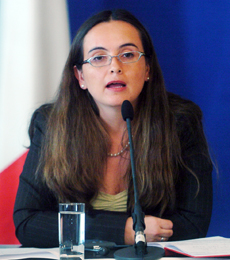 |
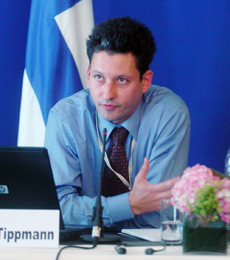 |
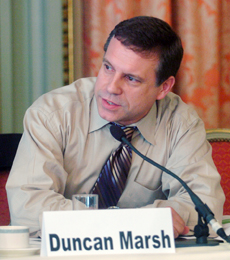 |
|||||
|
Grethel Aguilar, IUCN |
Robert Tipmann, Coordinator of Policy Advisory Services, Ecosecurities |
Duncan Marsh, The Nature Conservancy |
|||||
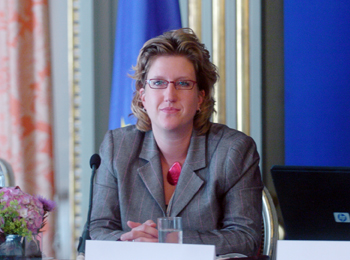 |
|||||
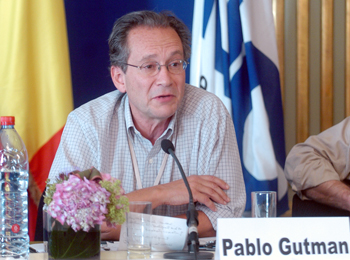 |
|||||
| Tatiana van Lier, Netherlands Postcodelottery | |||||
|
Pablo Gutman, Senior Policy Officer, Macroeconomics for Sustainable Development Program Office, WWF |
|||||
|
This workshop was co-chaired by Willem Ferwerda, IUCN Netherlands Committee, and Jean-Marc Michel, Director of Nature and Landscape, French Ministry of Ecology and Sustainable Development. In a keynote address, Kalli de Meyer, Dutch Caribbean Nature Alliance, highlighted that although the EU’s Overseas Countries and Territories (OCTs) span all of the world’s oceans and include many biological hotspots, they receive relatively little attention and funding. She called for: improved EU policy frameworks and legislation to address OCT-specific issues; mainstreaming OCTs in EU policies and existing EU projects; and increased finances for biodiversity conservation in OCTs, including through small grants. Josianne Irissin-Mangata, Regional Council of Réunion Island, introduced the European Research Area Network (ERA-NET), a joint research programme on sustainable development in OCTs. Mike Pienkowski, Pascale Joannot, Asii Chemnitz Narup, Minister of Environment, Corinne Desforges, Assistant-Director of Economic, Social and Cultural Affairs, French Ministry of Régis Dick, WWF France, described WWF’s OCT biodiversity awareness-raising programme. Stéphane Verwilghen, DG Development, EC, outlined EC initiatives on OCTs, noting that EU legislation applies to Outermost Regions but not to OCTs. He announced the tenth phase of the European Development Fund (EDF, 2008-2014), highlighting the EC’s commitment to cooperate with OCTs to better integrate OCT issues in actions under the EDF. Etienne Coyette, DG Environment, EC, said OCTs’ access to EC programmes remains under discussion, noting that all action has to be channeled through geographically coordinated programmes. Georges Handerson, Minister of Sustainable Development of French Polynesia, called for increased funding for research programmes in the Pacific region and coordination to address transboundary environmental issues. Participants stressed the need for: increased regional cooperation between different OCTs as well as between OCTs and international organizations; synergies between territorial and regional cooperation and between different EU policies; an improved political framework within the EC to address OCT issues; increased funding and research; mainstreaming policies for OCTs; and focus on ways to increase the EU’s profile internationally through their OCTs.
|
|||
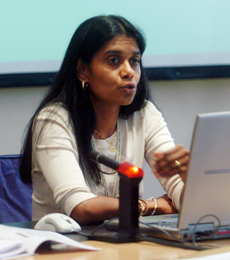 |
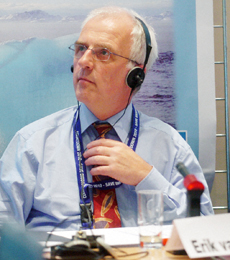 |
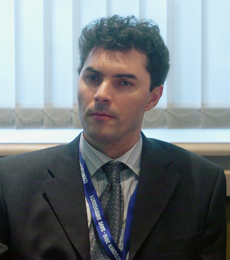 |
|||||
|
Josianne Irissin-Mangata, Regional Council of Réunion Island |
Erik van Zadelhoff, Senior EU Policy Officer and Global Ecosystems, EU Liaison Office |
Sébastien Moncorps, IUCN |
|||||
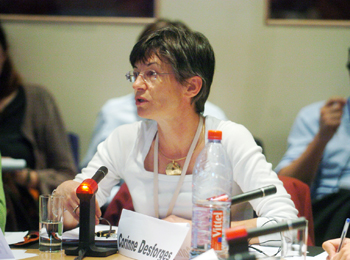 |
|||||
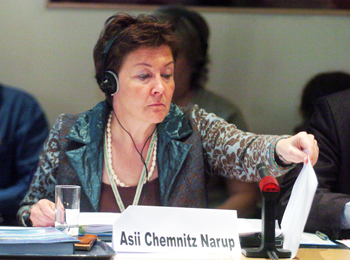 |
|||||
| Corinne Desforges, Assistant-Director of Economic, Social and Cultural Affairs, French Ministry of Overseas Territories | |||||
|
Asii Chemnitz Narup, Minister of Environment, |
|||||
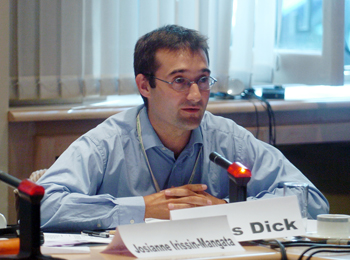 |
|||||
 |
|||||
| Régis Dick, WWF France | |||||
|
Willem Ferwerda, IUCN Netherlands Committee |
|||||
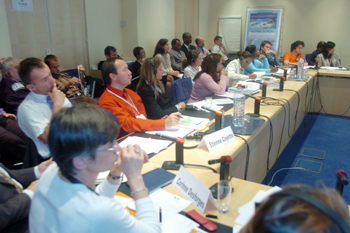 |
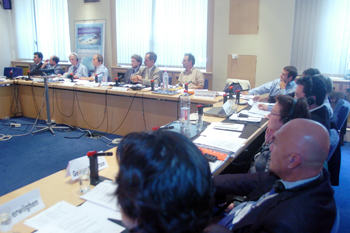 |
|||
|
This workshop was chaired by Alain Lipietz, Member of European Parliament. He listed trade, development and environment as key issues for the European Parliament, with regulation regimes as a major focus for governments and civil society. Kamal Gueye, Programme Manager, International Centre for Trade and Sustainable Development (ICTSD), gave a keynote speech on behalf of Ricardo Melendez-Ortiz, ICTSD Director, explained that ICTSD has analyzed declining fisheries stocks and forest areas as biodiversity losses due to trade problems, and noted that only six out of 60 EU Country Strategy Papers had environmental analyses, and only three had strategic environmental assessments. He argued that public opinion strongly supports environmental analysis and said ICTSD recommends intervention modalities to: prevent and mitigate adverse environmental impacts of trade; reduce adverse impacts of environmental and safety measures on trade; and use trade measures and development cooperation to achieve environmental policy goals. Sophie des Clers, Papa Samba Diouf, WWF Senegal, noted the possible conflicts between World Trade Organization (WTO) rules and EU fisheries agreements with African coastal States, and discussed the biodiversity impacts of overfishing. José Parajuá Aranda, Managing Director, Cluster of Fishing Companies in Third Countries, Saskia Ozinga, FERN, noted that biodiversity conservation rarely goes together with international cooperation because of weak legislation and governance, corruption, and lack of public participation and law enforcement. Joaquim Machado, Director, Governmental Affairs on Biodiversity and Biotechnology, Syngenta, described farming practices in Sebastien Risso, Maria Fernanda Espinosa, IUCN Regional Director for Walter Kennes, EC Director General for Development, said the EC is now mainstreaming environment in development programmes, although their primary mission is poverty alleviation. In the ensuing discussion, participants addressed: multifunctionality as a means of conserving biodiversity; agricultural subsidies as distortions in both trade and development programmes; the need for ecosystem service analysis and internalizing the externalities of production; the problems of restricting trade by certification; and asymmetries in trade negotiations between the EU and its trading partners.
|
|||
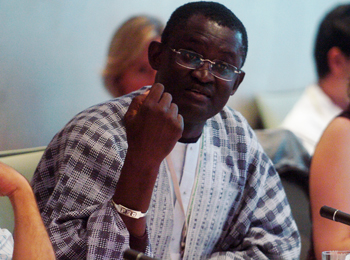 |
|||||
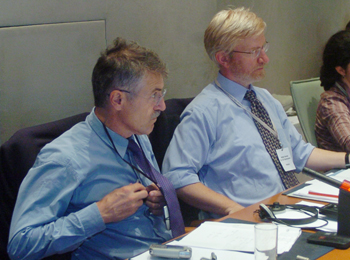 |
|||||
| Papa Samba Diouf, WWF Senegal | |||||
|
Alain Lipietz, Member of European Parliament, and Walter Kennes, EC Director General for Development |
|||||
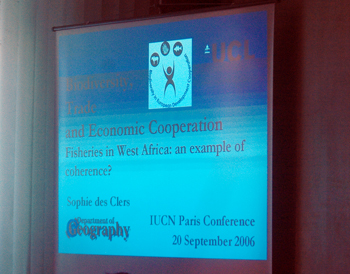 |
||||
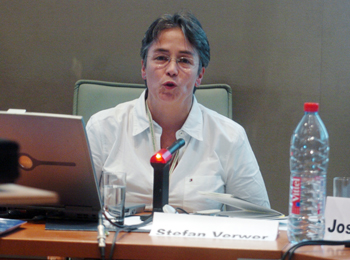 |
||||
|
Sophie des Clers, University of London |
||||
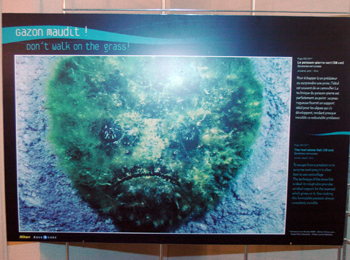 |
|||
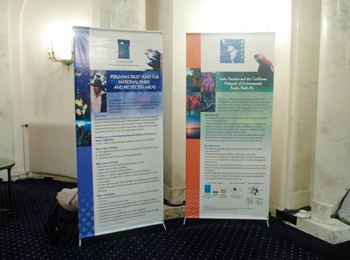 |
|||
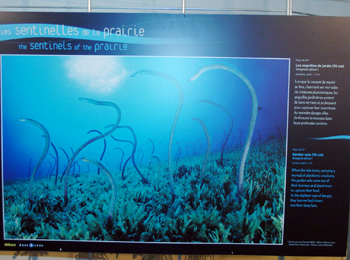 |
|||
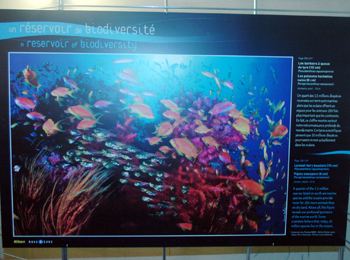 |
|||
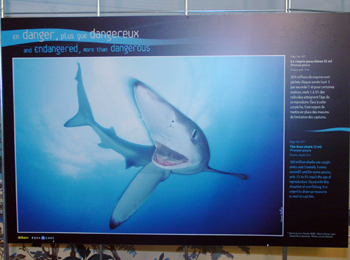 |
|||
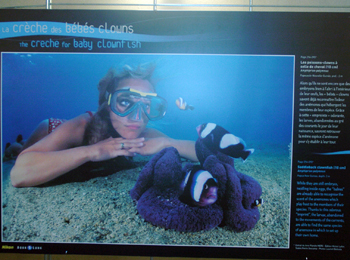 |
|||
|
Related links
|
|||
|
Links to IISD RS coverage
|
|||
|
|
|||
|
|
|
|
|
|
|
